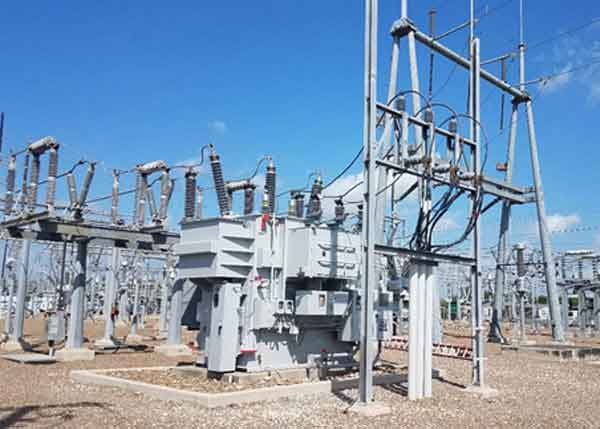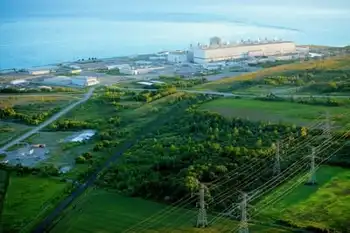PUC commissioners visit Comanche plant
By Knight Ridder Tribune
Arc Flash Training CSA Z462 - Electrical Safety Essentials
Our customized live online or in‑person group training can be delivered to your staff at your location.

- Live Online
- 6 hours Instructor-led
- Group Training Available
When the new unit is finished, Comanche will be Xcel's largest Colorado plant. The three members of Colorado's Public Utilities Commission - Ron Binz, Polly Page and Carl Miller - and more than 30 staff members from the PUC and the Office of Consumer Counsel traveled to Pueblo to tour the plant.
The group was about 45 minutes late because of a flat tire and at the beginning of a presentation by Xcel officials, Binz jokingly told the power company executives, "If you think you're having a bad day, how would you like to be the bus company, regulated by the PUC, that was supposed to get us here?"
In 2004, the PUC approved an agreement between Xcel and a number of groups including the Sierra Club and Better Pueblo, that provided for more strict pollution controls on the entire Pueblo plant along with efforts to mitigate other air quality issues in the area.
In return for Xcel's promises to improve the two existing 350-megawatt units here, the groups agreed not to fight approval by the PUC or the Colorado Department of Public Health and Environment, which had to issue an air permit.
The state officials saw at close hand the equipment being installed that will reduce sulfur dioxide and nitrogen oxide emissions at the plant to levels lower than they are now, even with the third unit running. New processes in the bag houses where exhaust is filtered also will reduce mercury emissions.
Tim Farmer, Comanche 3 project director, said that the new unit should be running by fall 2009.
The $1.3 billion project has provided hundreds of jobs for skilled union workers with $250 million of the total cost going to pay wages. Farmer said that employment should peak in February and March at 1,400 workers and then start to decline.
Bechtel is starting to recruit a similar work force for the mustard agent destruction program at the Pueblo Chemical Depot, but Farmer said that the Comanche work should be finishing up as Bechtel's project starts to grow. It hasn't been easy to find workers, he said. Pipefitters and boilermakers were in short supply, and 10-hour days Monday through Friday are the norm as the company tries to make do with overtime.
Farmer said workers are not asked to do longer shifts for safety reasons. Work is being done on all elements of the new unit, the boiler, turbine building and cooling towers, while other crews are retrofitting units 1 and 2 with the new pollution control equipment. Commodity prices also have gone up since work began, especially copper and aluminum, but much of what was needed was purchased early, he said.
The new plant will add about 40 jobs to Comanche's 137-person work force, and plant manager Frank Arellano said many have been brought in so they would be ready to go when the unit is finished.
The new generator will be more effective than the two already in operation, using supercritical water that can drive turbines at much greater efficiencies. The coal used will be ground to a finer powder to make it burn better.
Xcel, Farmer said, also is working to recycle the water it uses to cool its system. The company had to increase its contract with the Pueblo Board of Water Works to handle the needs of the third unit, but it also is installing new systems to reuse water that is now discharged into the St. Charles River.











